With each sale we make, including the ones that don’t sell, we ask ourselves why. After 15 years and more than $500 million of transactions, that’s a lot of answers for why a restoration business sells and why it doesn’t.
After all those transactions, here’s what we’ve learned. Here are the things that tend to be present when restoration businesses sell and absent when they don’t.
Key One – Clear, professional financial and tax records are important. They are the evidence to back up what you say about your business. They don’t have to be prepared by an outside accountant or CPA, although that’s a plus, because that’s who will be looking at them on behalf of most buyers. Everything needs to tie together; income statements, balance sheets, bank statements, and tax records.
Key Two – A written marketing plan is a real plus. It’s a roadmap that shows a buyer how they’ll grow your business. Or at least how they’ll start. We know, we hear you. You built your business through years and years of bending over backwards for customers, doing superior work, and keeping your word. All that counts. It’s all important. And most of it, probably, was based more on the seat of your pants than a written marketing plan. BUT, much of that leaves when you walk out the door. A written marketing plan, plain and simple, stays behind and helps sell your business.
Key Three – Buyers like to see a strong presence of commercial customers. There’s no ‘set in stone’ percentage of commercial customers you need to have. The more, the better. Unless you are 70+% commercial customers, invest some time into attracting more commercial customers between now and whenever you list your business for sale.
Key Four – Buyers like to see a diversity of customers. Too high a percentage of sales coming from too few customers adds risk to buying your business. After all, that one decision maker who’s responsible for 25% of your business may be your neighbor or brother-in-law or go to your church.
Key Five – Lastly, or perhaps better said, firstly, buyers want to see a strong team. Again, remember, they’re buying the what and the who that are staying with the business after you sell. A responsible team of people who know the business and the customers builds confidence a buyer can operate and grow your business after you leave.
Sure, these aren’t the only reasons why buyers buy restoration businesses. Buyer/seller fit, sales trends, and profitability are all part of the decision. But in our experience, when a restoration business sells, these five keys are present.
Do you have all five? Most businesses don’t. Pick one and get to work, and let us know how we can help.


